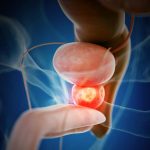What are heart palpitations?
Most of the time you won’t notice your heartbeat, but if you suddenly become aware of it, this may concern you or come as a surprise. The feeling of being aware of your heart beating is described as a palpitation.
Palpitations can range from simply being aware of your heart’s activity to the sensation of it beating faster and harder than usual. It can sometimes feel like your heart is missing beats or you have a heart flutter.
Changes to your heartbeat are usually not serious. But always see your doctor if you have palpitations or feel you have an irregular heart beat.
Dial triple zero (000) if you have heart palpitations along with these symptoms:
- severe shortness of breath
- chest pain or tightness
- dizziness or light-headedness
- fainting or blackouts
What are the symptoms of heart palpitations?
You might feel like your heart is racing, thumping or skipping beats. You might feel this when you are sitting still or moving slowly.
You may also feel faint, breathless or experience chest pain.
What causes heart palpitations?
There are many causes of palpitations and it’s common to experience them when you feel:
- nervous
- emotional
- anxious, including panic attacks
- stressed
This is due to a rise in adrenaline levels, which can cause your heart to beat faster.
Palpitations and irregular heartbeat can also be caused by:
- exercise
- strenuous activity
- drinks or foods containing caffeine (such as coffee, cola, tea and chocolate)
- alcohol and nicotine
- taking certain medicines (such as ephedrine and theophylline)
- taking recreational drugs (such as cocaine and amphetamines)
- hormone changes
- heart rhythm problems (arrhythmias or atrial fibrillation)
- heart conditions such as heart failure, problems with the valves in the heart, or congenital heart disease
- low blood sugar
- anaemia
- overactive thyroid
- dehydration
- dizziness and low blood pressure when you stand up too quickly
- panic disorder
How are heart palpitations diagnosed?
Your doctor will talk to you about how the palpitations start (gradually or suddenly), how long they last, how often they happen and any other symptoms you may have and your family history.
They may send you for further testing, including an electrocardiogram (ECG) to measure your heart’s electrical activity. This may be done by wearing a Holter monitor, a device that you wear for 24 hours while going about your normal activities.
How are heart palpitations treated?
Treatment of heart palpitations depends on what is causing them. Usually, there will be no treatment as the palpitations aren’t serious.
If you have a heart condition like an arrhythmia or atrial fibrillation, you may be sent to a specialist for treatment with medications, surgery or an implantable device.
How are heart palpitations managed?
If you have heart palpitations, or irregular or rapid heartbeats, there are a number of things you can do:
- Try to sit down and relax or find somewhere quiet to rest.
- Keep yourself calm and in a comfortable position.
- Try not to panic as this can make your symptoms worse.
- You may find it helpful to loosen any restrictive (tight) clothing that can affect your breathing, such as your collar button and tie.
- Avoid any stimulants that could make your palpitations worse — this includes caffeine, nicotine, alcohol and recreational drugs.
If you are concerned about your heart palpitations, please consult your doctor.



